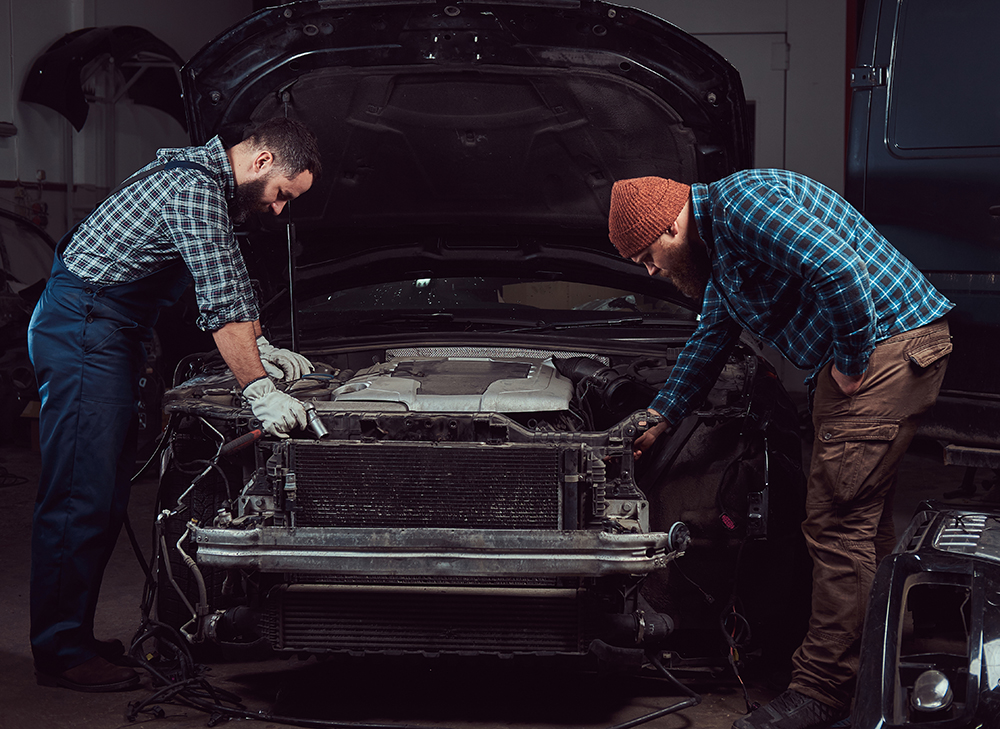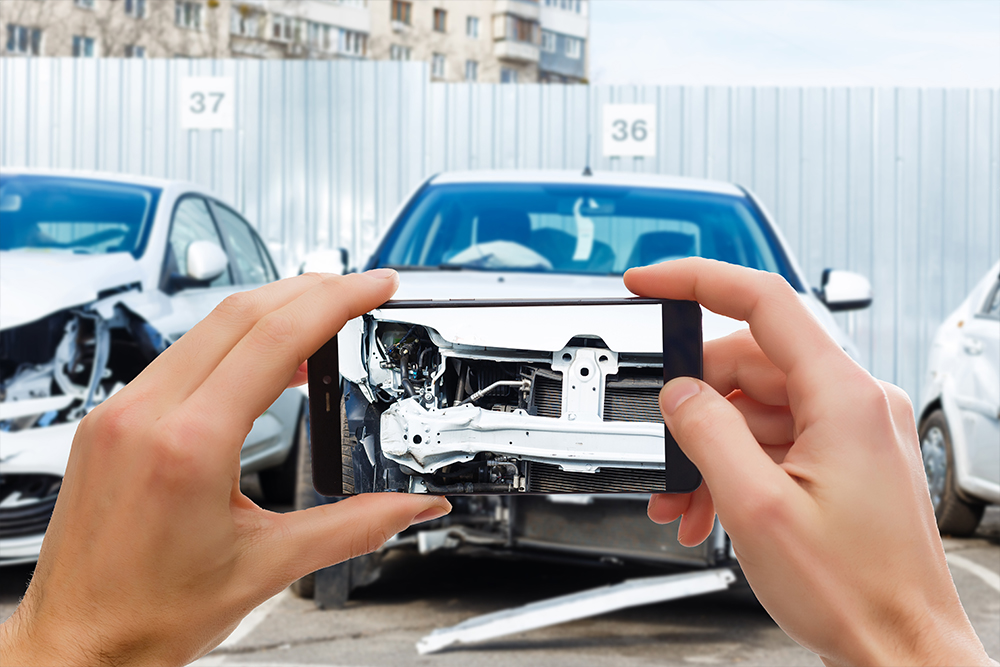Why is determining the value important?
Determining the value of a salvage car is crucial for several reasons. Firstly, it helps car owners understand the worth of their vehicle, especially if they are considering selling it. By knowing the value, they can set a fair price and negotiate better deals. Secondly, determining the value is important for insurance purposes. Insurance companies need to assess the value of a salvage car to determine the appropriate coverage and premiums. Lastly, understanding the value of a salvage car can also help in making informed decisions regarding repairs or upgrades. By knowing the value, car owners can decide whether it is worth investing in repairs or if it would be more cost-effective to sell the car as is. Overall, determining the value of a salvage car is crucial for financial planning and decision-making.
Overview of the article
In this article, we will provide an overview of the process of determining the value of a salvage car. We will discuss the factors that affect the value of a salvage car, such as the extent of damage, the age and make of the vehicle, and the market demand for salvage cars. Additionally, we will explain the various methods used to determine the value of a salvage car, including appraisal tools, online databases, and professional opinions. By the end of this article, you will have a better understanding of how to assess the value of a salvage car and make informed decisions when buying or selling one.
Factors Affecting the Value of a Salvage Car
Extent of damage
The extent of damage is a crucial factor when determining the value of a salvage car. It refers to the severity and scope of the damage sustained by the vehicle. This includes both visible and hidden damages, such as structural damage, mechanical issues, and cosmetic damage. The more extensive the damage, the lower the value of the salvage car is likely to be. Evaluating the extent of damage requires a thorough inspection of the car, including assessing the condition of its body, engine, transmission, suspension, and other crucial components. Additionally, factors like the age and make of the car, as well as the availability of replacement parts, can also influence the extent of damage and ultimately impact its value.
Age and mileage
When determining the value of a salvage car, two important factors to consider are the age and mileage of the vehicle. The age of the car can give insight into its overall condition and potential for future repairs. Generally, older cars may have more wear and tear, which can affect their value. Additionally, the mileage of the car is crucial in understanding how much the vehicle has been driven and how much life it may have left. Higher mileage cars may require more maintenance and could have a shorter lifespan. Therefore, when evaluating the value of a salvage car, it is essential to carefully assess the age and mileage to make an informed decision.
Make and model
When determining the value of a salvage car, one important factor to consider is the make and model of the vehicle. The make refers to the brand or manufacturer of the car, while the model refers to the specific version or variant of that brand. The make and model of a salvage car can greatly impact its value, as certain brands and models are more desirable and sought after than others. Popular makes and models often have a higher value due to their reputation for reliability, performance, and popularity. On the other hand, less popular or outdated makes and models may have a lower value. Additionally, the availability of parts and the demand for a particular make and model can also affect its value. It is important to research and consider the make and model of a salvage car when determining its value, as it can significantly impact the overall assessment.
Methods to Determine the Value
Insurance company appraisal
An insurance company appraisal is a crucial step in determining the value of a salvage car. When a car is deemed a total loss by the insurance company, they will send out an appraiser to evaluate the vehicle’s condition and calculate its worth. The appraiser will consider factors such as the car’s age, mileage, pre-accident condition, and any additional damages. They will also take into account the current market value of similar vehicles. Based on their assessment, the insurance company will offer a settlement amount to the policyholder. This appraisal process ensures that the insurance company provides a fair and accurate value for the salvage car, taking into consideration all relevant factors.
Online valuation tools
Online valuation tools are a convenient and efficient way to determine the value of a salvage car. These tools provide users with an easy-to-use platform where they can input the necessary information about the vehicle, such as its make, model, year, and condition. The tools then use advanced algorithms and market data to calculate an estimated value for the salvage car. This eliminates the need for manual research and guesswork, saving both time and effort. Additionally, online valuation tools often provide users with detailed reports and comparisons, allowing them to make informed decisions when buying or selling salvage cars. Overall, utilizing online valuation tools can greatly simplify the process of determining the value of a salvage car and ensure that users get the most accurate and up-to-date information.
Consulting with professionals
Consulting with professionals is an essential step when determining the value of a salvage car. These experts have the knowledge and experience to accurately assess the condition of the vehicle and provide an unbiased evaluation. Whether it’s an appraiser, a mechanic, or a salvage car dealer, seeking their advice can help you make an informed decision. They can consider factors such as the car’s make, model, year, mileage, and extent of damage to determine its worth. Additionally, professionals can guide you through the process of negotiating with insurance companies or potential buyers, ensuring you get the best possible value for your salvage car.
Calculating the Value
Using the percentage of the car’s value
Using the percentage of the car’s value is a common method to determine the worth of a salvage car. This approach involves calculating the percentage of the car’s pre-accident value that remains after the damage has occurred. Generally, the higher the percentage, the more valuable the salvage car is considered. Insurance companies and salvage yards often use this method to assess the value of a salvage car. However, it is important to note that other factors such as the extent of the damage, the make and model of the car, and the demand for salvage parts can also influence the final value. Therefore, while using the percentage of the car’s value is a useful starting point, it should not be the sole determinant in determining the value of a salvage car.
Considering the cost of repairs
When determining the value of a salvage car, it is crucial to consider the cost of repairs. Salvage cars are vehicles that have been damaged to the point where the insurance company has deemed them uneconomical to repair. Therefore, before purchasing a salvage car, it is essential to assess the cost of repairs and determine if it is worth the investment. Factors such as the extent of the damage, availability of parts, and the expertise required for repairs should all be taken into account. Additionally, it is advisable to consult with a professional mechanic or body shop to get an accurate estimate of the repair costs. By considering the cost of repairs, individuals can make an informed decision about the value and feasibility of purchasing a salvage car.
Taking into account the salvage title
When determining the value of a salvage car, it is crucial to take into account the salvage title. A salvage title is issued to a vehicle that has been deemed a total loss by an insurance company due to damage from an accident, natural disaster, or other significant event. This designation indicates that the car has undergone extensive repairs and may still have underlying issues or hidden damage. Therefore, when evaluating the value of a salvage car, potential buyers and sellers need to consider the salvage title and its impact on the vehicle’s worth. It is important to thoroughly inspect the car, assess its condition, and consider any potential safety concerns before making a decision.
Selling a Salvage Car
Finding potential buyers
When it comes to finding potential buyers for a salvage car, there are several avenues you can explore. One option is to advertise your car on online platforms such as classified websites or social media groups dedicated to buying and selling vehicles. These platforms allow you to reach a wide audience and connect with individuals who may be interested in purchasing a salvage car. Another option is to reach out to local salvage yards or auto parts dealers who may be interested in buying your car for its parts or for salvage purposes. Additionally, you can consider contacting car restoration enthusiasts or hobbyists who may be interested in taking on the challenge of restoring a salvage car. By exploring these different avenues, you increase your chances of finding potential buyers for your salvage car.
Disclosing the salvage title
When it comes to buying or selling a salvage car, one important aspect to consider is disclosing the salvage title. Disclosing the salvage title means informing the potential buyer or seller about the car’s history and its previous damage. This is crucial because it allows both parties to make an informed decision and negotiate a fair price. By disclosing the salvage title, the seller is being transparent and honest about the car’s condition, which builds trust and credibility. Additionally, disclosing the salvage title helps the buyer understand the potential risks and challenges associated with owning a salvage car, such as higher insurance costs or limited resale value. Overall, disclosing the salvage title is an essential step in the process of determining the value of a salvage car and ensuring a transparent transaction between the buyer and seller.
Negotiating the price
When it comes to negotiating the price of a salvage car, there are a few key factors to consider. First, it’s important to do your research and gather information about the car’s condition, history, and market value. This will give you a better understanding of what a fair price would be. Additionally, be prepared to make a reasonable offer based on the car’s current state and any necessary repairs or modifications. It’s also helpful to be flexible and open to negotiation, as both parties may need to compromise to reach a mutually beneficial agreement. Lastly, remember to remain polite and respectful throughout the negotiation process, as this can help foster a positive and productive discussion. By following these tips, you can increase your chances of successfully negotiating the price of a salvage car.
Summary of key points
In summary, determining the value of a salvage car involves considering several key points. Firstly, the extent of the damage and the cost of repairs play a crucial role in evaluating the worth of the vehicle. Additionally, factors such as the age, make, and model of the car, as well as its mileage and overall condition, need to be taken into account. Furthermore, the demand for salvage cars in the market and the availability of spare parts also impact their value. Lastly, consulting with professionals, such as appraisers or mechanics, can provide valuable insights and guidance in determining the value of a salvage car. By considering these key points, individuals can make informed decisions when buying or selling salvage cars.
Importance of determining the value
Determining the value of a salvage car is of utmost importance for several reasons. Firstly, it allows car owners to have a clear understanding of the worth of their vehicle, which can be crucial when it comes to selling or trading it. Knowing the value also helps in making informed decisions regarding insurance coverage and claims. Additionally, determining the value of a salvage car is essential for potential buyers who are interested in purchasing a damaged vehicle. It enables them to assess whether the price is fair and reasonable based on the car’s condition and market value. Overall, understanding the value of a salvage car is a vital step in ensuring transparency and making sound financial choices.
Final thoughts
In conclusion, determining the value of a salvage car can be a complex process that requires careful consideration of various factors. It is important to assess the extent of the damage, the market value of similar vehicles, and any additional costs associated with repairs or legal requirements. Additionally, obtaining multiple quotes from reputable salvage car buyers or appraisers can help ensure a fair and accurate valuation. Ultimately, the value of a salvage car is subjective and can vary depending on individual circumstances. Therefore, it is crucial to conduct thorough research and seek professional advice before making any decisions regarding the sale or purchase of a salvage car.










